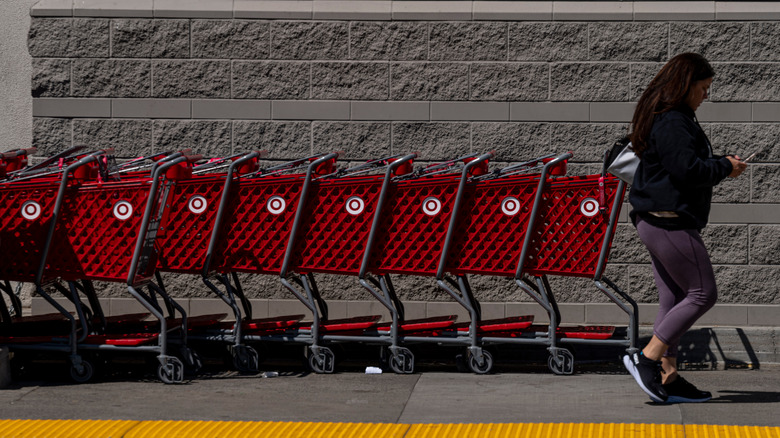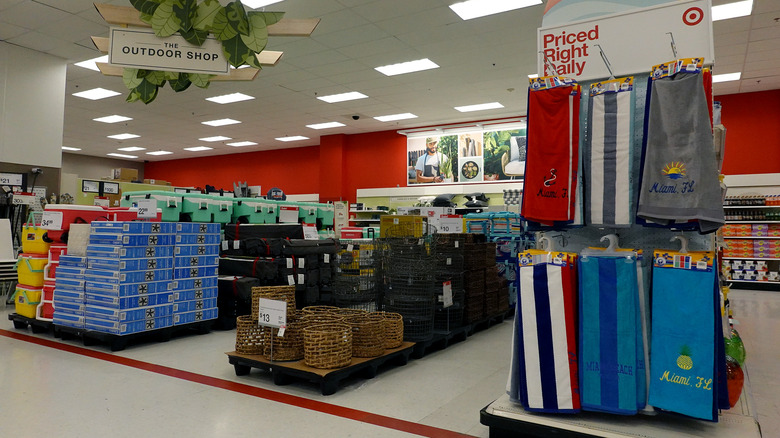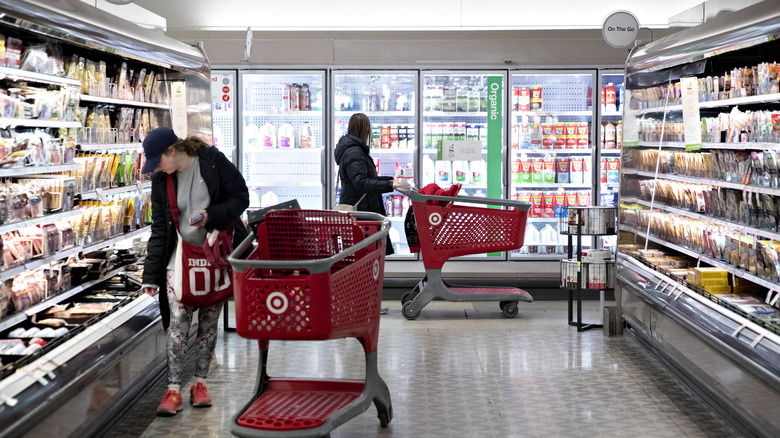The Real Reason Target Stock Plummeted 25%
When the pandemic first began knocking on America's door, Forbes predicted a retail armageddon that would come for brick and mortar, as well as e-commerce retailers who could not pivot to making home deliveries, since the potential need for sheltering at home loomed large.
And the outlet was not wrong. In the months after the pandemic began closing urban centers, some of the biggest names in the retail and dining space either began declaring bankruptcy, or shutting their doors altogether: from the high-end Dean and Deluca and Sur la Table to the mass market J.C. Penney and Tuesday Morning, per NBC News.
But there were a few bright spots on retail's bleak horizon. Retailers like Target and Walmart were thriving, with Target reporting sales growth in 2020 of $15 billion dollars, which it said was more than the company's total growth in the 11-year period before the pandemic. Digital sales registered a $10 billion growth during the same period propelled by a 235% growth in Target's same-day delivery services.
As the pandemic continued to push back against attempts to bring it under control, Target said it registered $106 billion in total revenue for 2021, nearly $28 billion (or more than 35%) more than in 2019.
Target's first quarter earnings for 2022 fell more than 50 percent
After, two years' worth of robust sales growth, it seemed that Target would continue on its astronomical trajectory — but it was not meant to be. When Target went before analysts and its shareholders this week to announce its results, it was to say that its first-quarter profits had fallen by just over 50% — with more losses to come, thanks to galloping fuel and freight costs, per The Wall Street Journal.
Suffice it to say that Target wasn't the only retailer that bore the brunt of investor disappointment — Walmart shares flirted with a 52-week low when it announced its earnings, shedding 11.38% of its share value (per CNBC). But that was nothing compared to the beating Target's shares received after it announced its dismal first-quarter results — investors sold big, and as a result, shares plummeted 25%, losing an estimated $25 billion of the retailer's market capitalization — or the dollar value of its shares — in the process, per Reuters. May 18 was a red-letter day for Target; it was the company's worst trading day since Black Monday or October 19, 1987.
Target, Walmart, saw shoppers spend more on food, drinks
Target itself saw this coming but didn't think the reckoning would happen so quickly. Bloomberg says the retailer's Chief Executive Officer Brian Cornell told reported a "rapid slowdown" in categories that include clothing, housewares, and sporting equipment. "We expected consumers to continue refocusing their spending away from goods and services. We didn't anticipate the magnitude of that shift," said Cornell.
Walmart reported seeing a similar shift in spending priorities, as its Chief Financial Officer Brett Biggs noted that consumers have been spending more on groceries and less on discretionary items. Target said it saw the same phenomenon. Profit margins on food and beverage tend to be lower than other types of merchandise.
In reacting to the sell-off, Wells Fargo Investment Institute's head of global market strategy, Paul Christopher told Reuters, "We think the developing impact on retail spending as inflation outpaces wages for even longer than people might have expected is a principal factor in causing the market sell-off today. Retailers are starting to reveal the impact of eroding consumer purchasing power."
Reduced consumer demand may be a good thing: analysts
It might be difficult to look for any silver linings in this scenario, particularly if you are Target, but Bloomberg believes there is one. It says that economists have been predicting a drop-off in consumer demand for merchandise since some pandemic restrictions have been lifted and that lower demand for merchandise would turn into higher demand for experiences like travel and entertainment. It is hoped that the drop in demand for goods will eventually lead to less pressure on global supply chains and that this will, in turn, bring some relief to inflation, which has been surging to record highs. As proof of this, airline companies have already started predicting better sales figures as consumers begin planning summer travel.
Analysts also say a slowdown can also be a good sign, especially since Federal Reserve Chairman Jerome Powell has already said his bank will continue jacking up interest rates until there are what he calls "clear and convincing signs" that inflation's upward descent has been reversed.



